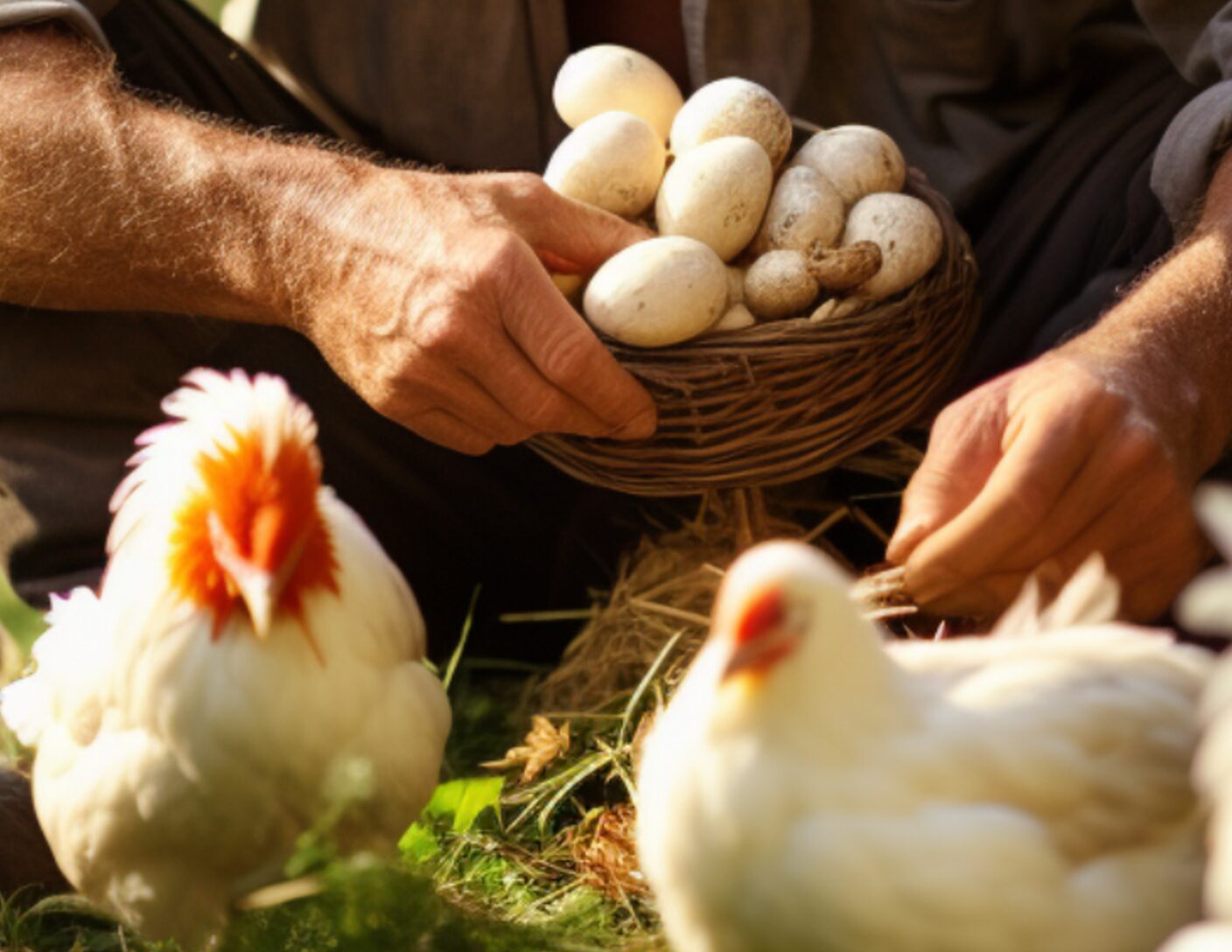When we imagine perfect protein, the initial association likely lands upon muscle meats as standard. Staying near the habits of ancestral eating patterns, animal flesh & organ can be assumed the most nutrient dense, and annually available sources of nutrition. And as Homo Sapiens domesticated live stock, the egg most assuredly became a critical supplement to meat.
Fast forward centuries, the egg continues to play a role as coner stone to some of the healthiest eating protocols. Perhaps because of its cost, portability, and myriad of ways of preparing, the egg is a highly valuable source of protein and fuel.
Hunting and gathering at your local Whole Foods or Trader Joe’s, you will likely be accosted with copious options for eggs varying in price and claims of organic, pasture raised, cage free, or standard base model. In the following paragraphs we sift though the layers of science and nutrition to understand if the upward variance of cost provides significant ROI In nutrition (independent of ethical considerations).
Lets first gain clarity under definitions the USDA provides for eggs:
- Cage Free: Birds are able to freely roam a building, room or enclosed area with unlimited access to food and fresh water during their production cycle. Verification of these claims may vary widely and does not impact what animals eat. Organic animals eat only organic feed.
- Organic: Labeling term that indicates that the food or other agricultural product has been produced according to the USDA organic standards. These methods integrate cultural, biological and mechanical practices that foster cycling of resources, promote ecological balance and conserve biodiversity. Synthetic fertilizers, sewage sludge, irradiation and genetic engineering may not be used.
- Free Range: Birds are provided shelter in a building, room or area with unlimited access to food and fresh water and continuous access to the outdoors during their production cycle; the outdoor area may or may not be fenced and/or covered with netting-like material. Like cage-free, free-range does not specify the type of feed for animals.
- Grass-fed: Animals receive a majority of their nutrients from grass throughout their life and have continuous access to pasture during growing season; does not limit the use of antibiotics, hormones or pesticides; meat products may be labeled as grass-fed organic. Certified organic cows are required to be on pasture during the grazing season and eat certified organic pasture or feed.
- Humane: Multiple private labeling programs make claims that animals were treated humanely during the production cycle. The verification of these claims varies widely.
- Natural: Meat, poultry and egg products that are minimally processed and contain no artificial ingredients; does not include standards regarding farm practices and applies to processing of meat, poultry and egg products; no standards or regulations exist for labeling natural food products that do not contain meat, poultry or eggs.
- Pasture-raised (not regulated): USDA does not have a labeling policy for pasture-raised products.
Understanding these definitions, we can make some safe assumptions and save ourselves from paying for fraudulent terms that are not held to any measurable standard. For the optimum foraging of eggs prioritize the below pedigree:
- Organic
- Free Range
However in reviewing a couple of studies the consensus indicates that there may be a difference in nutrition based off the diet of the hen, but the overall impact to nutrition is not significant. The question remains: is paying $2.00 more per 12 pack justify at best case scenario 4% of incremental nutrition.
- According to Cherian, Holsonabake, & Goeger, (2002) and their analysis of total fat and fatty acid content of specialty eggs, there was no significant difference between cage free, organic, and regular white eggs.
- Conversely, a similar study measuring carbon and nitrogen isotopes in yolk between various caged, uncaged, organic (18 different brands total) found that in general, free range, and organic eggs laid eggs showed enrichment up to 4% relative to caged and barn laid eggs (suggesting hen diet of higher animal protein vs. plant based can have nutritional affect
For comparison we reviewed a few different packages of eggs purchased from Trader Joe’s to understand if there are any nutritional differences from pasture, free range, organic or standard barn / caged eggs.
N=4
Happy Eggs Pasture Raised
TJ Organic Free Range Eggs
TJ Pasture Raised Eggs (no antibiotics & hormones)
Safeway Standard Eggs
Caloric wise, each egg brand indexed at 70 KCal per egg. Calcium was 2mg higher in the Happy Eggs Pasture Raised. Iron was 2% higher in the Trader Joes organic free range eggs. The largest difference was potassium; with the Trader Joe’s Pasture raised interestingly contained zero, whereas the Happy Eggs Pasture Raised came in with 70mg and Trader Joe’s Organic Free Range had 69mg. I’m somewhat convinced this must be a labeling error to account for such an anomalous variation. As control, standard base level egg sold at Safeway. The differences get interesting when comparing to a standard barn / caged egg from Safeway. And against my initial hypothesis, the nutritional differences were nearly non-existent.
Comparisons of the above brands illustrated underwhelming differences in nutrition independent of pricing labels. Considering ROI, we recommend organic at the very least as any time you can avoid GMO and pesticides it usually best. Caged free pricing and lack of overt nutritional advantage disincentives increased price tag. Although the color of the yolk is most definitely darker when compared to the control. The color difference is alleged to reflect a higher fat diet (cage free hens have the ability to vary diet with bugs and other grasses) which are higher in carotenoids (as indicated by color).
What are carotenoids?
Carotenoids are the pigments in that produce yellow, red, and orange colors in plants, vegetables. and fruits. Carotenoids are fat soluble compounds that have antioxidant properties: Antioxidants serve to protect the body from disease by bolstering the immune systems (simplified).
Cherian G, Holsonbake TB, Goeger MP. Fatty acid composition and egg components of specialty eggs. Poult Sci. 2002 Jan;81(1):30-3. doi: 10.1093/ps/81.1.30. PMID: 11885896.
Karyne M. Rogers. Stable Isotopes as a Tool to Differentiate Eggs Laid by Caged, Barn, Free Range, and Organic Hens. Journal of Agricultural and Food Chemistry 2009 57 (10), 4236-4242. DOI: 10.1021/jf803760s
ttps://www.ams.usda.gov/services/organic-certification/organic-basics














